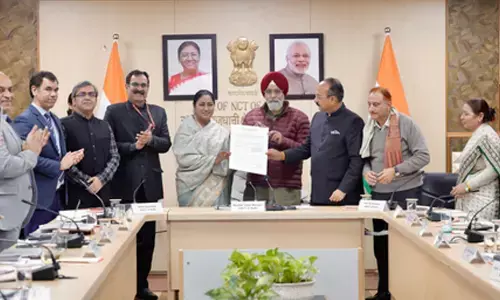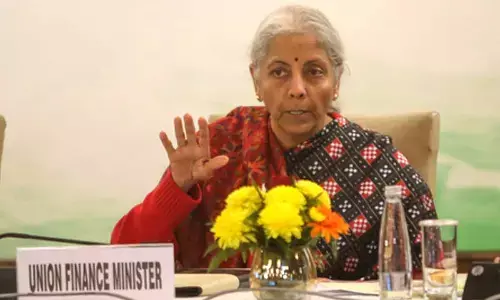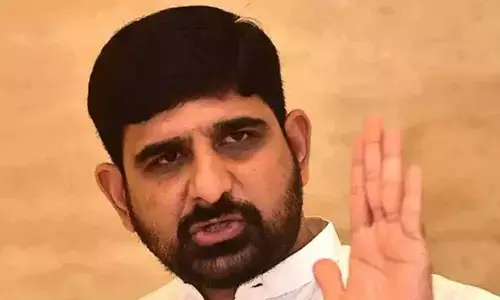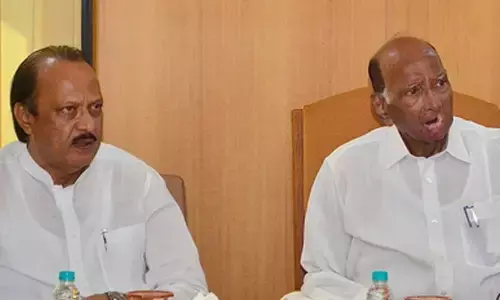Human rights scenario in India
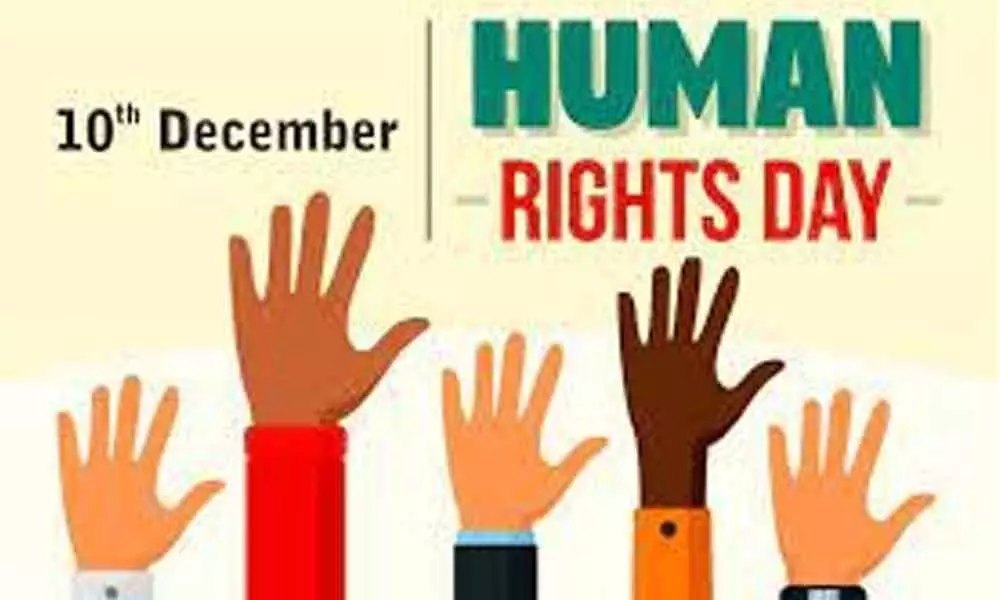
Representational Image
December 10 is the international Human Rights Day. This day is observed all over the world as the rights day because it was on this day in 1948 that the United Nations General Assembly adopted the Universal Declaration of Human Rights.
December 10 is the international Human Rights Day. This day is observed all over the world as the rights day because it was on this day in 1948 that the United Nations General Assembly adopted the Universal Declaration of Human Rights. This declaration is a milestone document, which proclaims the inalienable rights that every person is entitled to as a human being – regardless of race, colour, religion, gender, language, convictions, nationality, ethnicity, or any other ascribed status. It is the most widely referred doctrine and most widely translated document in the world with regard to the concept of rights.
The freedom struggle itself was greatly inspired by a burning desire to have the rights that the British enjoyed on our soil while the natives were denied the same. During the long drawn freedom struggle, several attempts were made with regard to rights and the Nehru Committee Report, headed by Motilal Nehru, spelled out our idea of rights very clearly as early as 1928, twenty years before the UN Human Rights Declaration was adopted and seventeen years before the UN itself was conceived.
Scholars have observed that the fundamental rights section of the Nehru Report was a close precursor of the Fundamental Rights of the Constitution of India. In fact, 10 of the 19 subclauses in the Nehru Report re-appear, materially unchanged, and three of the Nehru rights are included in the Directive Principles. It was suggested that the Nehru Report, in the context of the international discourse of rights around the late 1920s, was a rather exceptional document in its early envisioning of social and economic rights. Thus, the inclusion of a wide spectrum of political, economic, social and cultural rights in our constitution is indicative of the firm resolve of the framers about the rights of the people. In fact, our freedom struggle started off as a fight for rights in the early years and graduated to a struggle for independence from alien rule in later years.
Claim for rights being the starting point of our long-drawn freedom struggle, what is the scenario of rights in India today? It is a relevant question to raise on the eve of the Human Rights Day and also as we approach the 75th year of India's Independence next year and plan a large-scale celebration. The answer is not exactly promising, if we take into account the encroachments made on the rights by subsequent legislations. In India, the State is evolving from the nation State to a Welfare State into a Security State. National security is the overarching claim made by the government for enacting draconian legislation which is eating into the vitals of our democratic constitutional framework.
The AFSPA 1958 (the Armed Forces Special Powers Act) and the UAPA 1967 (Unlawful Activities Prevention Act) are two prime examples of the shrinking space of rights in recent times. These Acts have been passed long back, but invoked with poignancy in recent times with little hope for citizens from violation of their basic rights. Even the seemingly innocuous Information Technology Act has emerged as a potential threat to our fundamental freedoms, the denial of which fired the demand for independence from alien rule. The excesses of the Executive are hidden in the name of national security.
National security must become the concern of every citizen and not merely the security forces. If national security is the exclusive concern of the security forces, what happened in Nagaland is a natural outcome. But, as a democratic nation with a liberal Constitution that assures the citizens fundamental rights as essential for the progress of the citizens who constitute the nation, we must think loudly about what happened in Nagaland on the rights day.
Between persuasion and coercion, the temptation for the latter is obvious. But, the best way to fight fissiparous tendencies is by achieving all round development that reaches various cross sections of the population than by implementing draconian laws that empower security forces to kill civilian population merely on the basis of suspicion and mistaken identity. Life cannot be restored by regret or relief, however generous it be. This should lead us to assess the perils of involving the armed forces to deal with civilian population. The police force is trained to deal with the civilian population, not the military. That being so, involving the military to deal with law and order is detrimental to the nation, if we define the nation as people. In fact, the need of the hour is to sensitise the police, paramilitary and military to people's genuine aspirations.
The nation holds the military in high esteem. For its part, the military performs admirably in the rescue and relief operations during distress times such as cyclones and earthquakes. It is a different ballgame when the soldier holds the gun. It is wrong to ask the soldier to do a thing he is not trained to do, in the first place. In this context, the national security advisor's advice to IPS probationers that 'the new frontier of war, what you call the fourth-generation warfare, is civil society... that can be… manipulated to hurt the interest of a nation,' comes as a rude shock.
The naïve attempt of the national security advisor's attempt to pit the civil society against the nation is deplorable because it reflects the Government's tendency to consider criticism as enemy action. Criticism constitutes to core of freedom, however unacceptable that criticism may be, and it is one of the essential aspects of a democracy and reflects the health of a vibrant rights scenario. If dissent is viewed inimically, it cuts at the roots of a democratic society. The Britishers also viewed our freedom struggle in the same light.
Animosity to dissent is antithetical to democracy and poses a grave threat to the rights of the people. 'If you are not with me you are against me' was an assertion that came out of a deep sense of insecurity. That is why, it is essential to sensitise the law-enforcing agencies towards the aspirations of the people. We must not forget that agitation is a legacy from the freedom struggle and unless people agitate, governments do not listen. The farmers' agitation was initially described as a show by anti-national elements by the government and, deplorably, the media bought that narrative without a question.
If dissent is viewed negatively and dubbed as inimical, the right to freedom is completely irrelevant. But, the right to equality and the right to liberty are the bullwork of a democratic society. Ironically, rulers do everything in the name of democracy, every action that goes against the grain of democracy is taken singing democracy as the theme song. Unfortunately, the two institutions that are expected to uphold rights, the media and the judiciary, have lost their sheen. These are the issues on which we should lose sleep on the occasion of the International Human Rights Day.
(The writer is an Assistant Professor, Dr BR Ambedkar Law College, Hyderabad)











